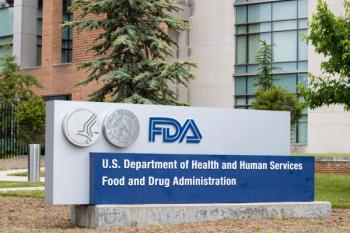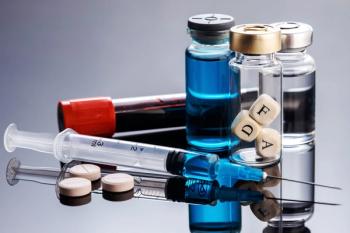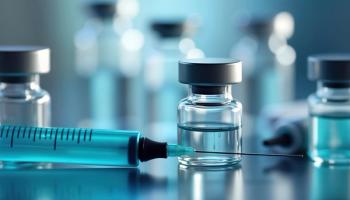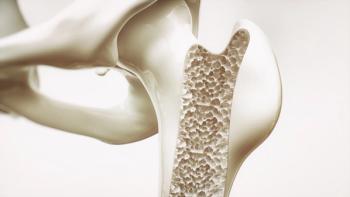
Biosimilars Made a Significant Dent on 2021 Drug Spending
Although spending on prescription drugs marched higher in 2021, the spending might have been significantly higher were it not for the savings from biosimilars, which appear to be gaining traction, according to a new report.
By imposing restraints on prescription drug spending, biosimilars were a major bright spot in 2021, according to a new report by
Overall, pharmaceutical expenditures in 2021 were up 7.7% to $576.9 billion compared with 2020, Tichy and his coauthors wrote in the
These and other developments led Tichy and his colleagues to conclude that “in 2021, the pivot to biosimilar preference was significant and rapid.”
“Beyond the increased numbers of new biosimilar approvals and launches, important new biosimilars were approved, and use of biosimilars increased in 2021, beginning with the FDA decisions to give interchangeability designations to two biosimilars,” they wrote.
The interchangeable designation speeds up access by allowing pharmacies to dispense biosimilars in place of “originators” — the brand-name products that the biosimilars are copies of — without physician consent. Interchangeable status was granted for biosimilars of Lantus (insulin glargine) and Humira (adalimumab), although the Humira biosimilars won’t be on the market till next uyear
The report highlighted the importance of biosimilar competition for Humira, which topped the list for U.S .drug spending ($25.5 billion) in 2021, up 14.6% from 2020.
On the clinical side in 2021, five drugs with biosimilar competition saw significantly lower spending: Herceptin (trastuzumab), Neulasta (pegfilgrastim), Remicade, Avastin, and Rituxan. Clinical spending on these reference products and their biosimilars dropped 19.8%, 16.8%, 13.6%, 9.0%, and 8.8%, respectively.
Looking at the growth in spending on biosimilars versus their reference products is another way of measuring their success, because biosimilars tend to compete on pricing. The report by Tichy and his colleagues show that spending on clinical biosimilars increased to $5.3 billion in 2021 from $4.3 billion in 2020.
Clinical market share for some biosimilars versus their reference products increased dramatically. Avastin biosimilars captured a 62.9% share in 2021 compared with 35.6% in 2020; Rituxan biosimilars, 44.9% compared with 18.3% in 2020; and Herceptin biosimilars, 63.2% compared with 35.7%.
Use of biosimilars in community hospital settings also was up in 2021, from $0.7 billion in 2020 to $1.1 billion in 2021.
“The U.S. healthcare system is poised to see further growth in biosimilars in 2022 as a result of increased market share for existing products, lowering of prices by innovators in response to biosimilar competition, and new biosimilar competition for therapeutic agents for which biosimilars do not currently exist,” they wrote.
In oncology, biosimilars will “continue to erode reference products’ market share; however, that will likely not be enough to offset expenditures for the novel biologic agents and immunotherapies,” Tichy and his colleagues said.
The authors also expressed moderate confidence that policy and legislative efforts would speed biosimilar adoption. An FDA initiative to improve education on biosimilars, spurred by the Advancing Education on Biosimilars Act, could play a role, they said. The Build Back Better legislation also had provisions that would boost provisions that would support biosimilars. While passage of a pared-down “skinny” version Build Back Better is possible, the authors said legislation may be chopped into smaller bills that get considered on their own
Newsletter
Get the latest industry news, event updates, and more from Managed healthcare Executive.























